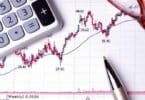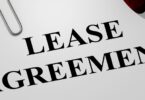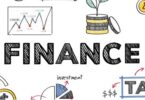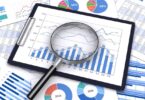Recession MCQ:
Question: What is a recession?
(a) A period of economic growth and prosperity
(b) A period of economic decline and negative growth
(c) A period of economic stability and stagnation
Question: During a recession, what fiscal policy approach can governments take to boost economic activity and create jobs?
(a) Increasing corporate tax rates
(b) Reducing public infrastructure spending
(c) Implementing direct cash transfers to citizens
(d) Encouraging businesses to raise prices
Question: What is the most common cause of a recession?
(a) High government spending
(b) Low consumer spending
(c) Overheated economy with high inflation
Question: Which of the following economic strategies can help address a recession by promoting long-term growth and competitiveness?
(a) Increasing trade barriers and tariffs
(b) Focusing on short-term spending without considering deficits
(c) Investing in education and workforce development
(d) Implementing price controls on essential goods
Question: What is GDP?
(a) Gross domestic product
(b) Gross domestic purchase
(c) Gross development process
Question: Which of the following is a common impact of a global recession on the job market?
(a) A surge in job opportunities and low unemployment rates
(b) Increased demand for skilled workers and higher wages
(c) Rising unemployment rates and job losses across various sectors
(d) Companies expanding their workforce to meet consumer demands
Related: Foreign Exchange Market Quiz
Question: What happens to unemployment during a recession?
(a) It increases
(b) It decreases
(c) It remains the same
Question: How does a global recession typically affect international trade and commerce?
(a) A boost in exports due to competitive pricing in the global market
(b) Increased foreign investments leading to economic growth
(c) Decline in both imports and exports as consumer demand contracts
(d) A surge in foreign aid and economic assistance to affected countries
Question: What is the difference between a recession and a depression?
(a) A depression is longer and deeper than a recession
(b) A depression is shorter and shallower than a recession
(c) A recession and a depression are the same thing
Question: During a global recession, what tends to happen to stock markets and investment portfolios?
(a) Stock markets experience steady growth and provide strong returns
(b) Investment portfolios become more diverse and risk-averse
(c) Stock markets tend to be volatile, resulting in significant losses for investors
(d) The demand for stocks and equities rises, driving market expansion
Related: quantitative methods for economic analysis
Question: What is inflation?
(a) A decrease in the price of goods and services
(b) An increase in the price of goods and services
(c) A stable price of goods and services
Question: During a recession, which of the following is most likely to happen?
(a) A prolonged period of economic contraction and high unemployment
(b) A significant increase in consumer spending and business investments
(c) Robust economic growth and expansion of GDP
(d) Stable prices and inflation rates
Question: What is deflation?
(a) An increase in the price of goods and services
(b) A decrease in the price of goods and services
(c) A stable price of goods and services
Question: What is the primary distinction between a recession and a financial crisis?
(a) The cause of the economic downturn
(b) The involvement of the government in economic stabilization
(c) The severity of stock market fluctuations
(d) The impact on international trade and commerce
Question: What is a fiscal stimulus?
(a) An increase in government spending to boost economic activity
(b) A decrease in government spending to control inflation
(c) A stable level of government spending
Question: During a financial crisis, which aspect of the economy is most affected?
(a) Consumer spending and borrowing
(b) Business investments and expansions
(c) The stability of the financial system and banking sector
(d) Government policies and fiscal measures
Question: What was the primary cause of the Great Recession that occurred between 2007 and 2009?
(a) A sudden decrease in consumer spending
(b) Excessive government spending and budget deficits
(c) A housing market collapse and subprime mortgage crisis
(d) A surge in international trade tariffs and protectionism
Question: What is the definition of a recession in an economic context?
(a) A period of rapid economic growth and expansion
(b) A sustained period of low inflation rates and stable prices
(c) A time when the economy experiences negative GDP growth for two consecutive quarters
(d) A situation where the government increases public spending to boost the economy
Related: supply and demand test multiple choice
Question: Which of the following factors is commonly associated with causing a recession?
(a) Increased consumer spending and borrowing
(b) Expansionary monetary policies by the central bank
(c) Rapid growth in the housing market
(d) A significant decrease in business bankruptcies
Question: During a recession, how do consumer spending habits tend to change?
(a) Consumers tend to spend more on luxury items and non-essential goods
(b) Consumer spending remains constant with no significant changes
(c) Consumers reduce their spending and prioritize essential goods and services
(d) Consumer spending increases as people have more disposable income
Question: In the context of an economic recession, what role do interest rates often play?
(a) Higher interest rates encourage borrowing and investment, stimulating economic growth.
(b) Lower interest rates encourage borrowing and investment, stimulating economic growth.
(c) Interest rates remain unchanged during a recession to stabilize the economy.
(d) Interest rates fluctuate erratically during a recession, causing uncertainty in the financial markets.
Question: During a recession, what is one of the best financial practices individuals can adopt to survive the economic downturn?
(a) Increasing spending on non-essential items to support local businesses
(b) Taking on more debt to maintain their lifestyle
(c) Building up an emergency savings fund for unexpected expenses
(d) Investing heavily in high-risk assets for potential high returns
Question: Which of the following external events can contribute to the onset of a recession?
(a) Increased government spending on infrastructure projects
(b) A surge in international trade and exports
(c) Global oil price shocks and supply disruptions
(d) An influx of foreign direct investment in the domestic market
Question: How can businesses improve their chances of surviving a recession?
(a) Cutting costs across the board, including employee wages and benefits
(b) Expanding operations and investing in new ventures
(c) Diversifying their product or service offerings to reach new markets
(d) Increasing prices to maintain profit margins
Question: During which historical period did the “Great Depression” occur, which is considered one of the most severe recessions in history?
(a) 1960s
(b) 1920s
(c) 1940s
(d) 1970s
Question: Which of the following statements is true about recessions?
(a) Recessions always last for at least two years.
(b) Recessions are characterized by positive economic growth and low unemployment rates.
(c) Recessions can lead to a decrease in consumer spending and business investments.
(d) Recessions have no impact on the stock market.
Question: Which country experienced the “Lost Decade” during the 1990s, a period marked by a prolonged economic recession and stagnation?
(a) Germany
(b) Japan
(c) United States
(d) China
Question: What is the usual role of central banks during a recession?
(a) To increase interest rates to encourage borrowing and spending.
(b) To decrease the money supply to control inflation.
(c) To implement fiscal stimulus actions to boost the economy.
(d) To maintain a hands-off approach and let the market stabilize itself.
Question: The 2008 financial crisis, also known as the “Global Financial Crisis,” originated in which sector and was triggered by a collapse in the housing market?
(a) Technology
(b) Energy
(c) Real estate and banking
(d) Healthcare





